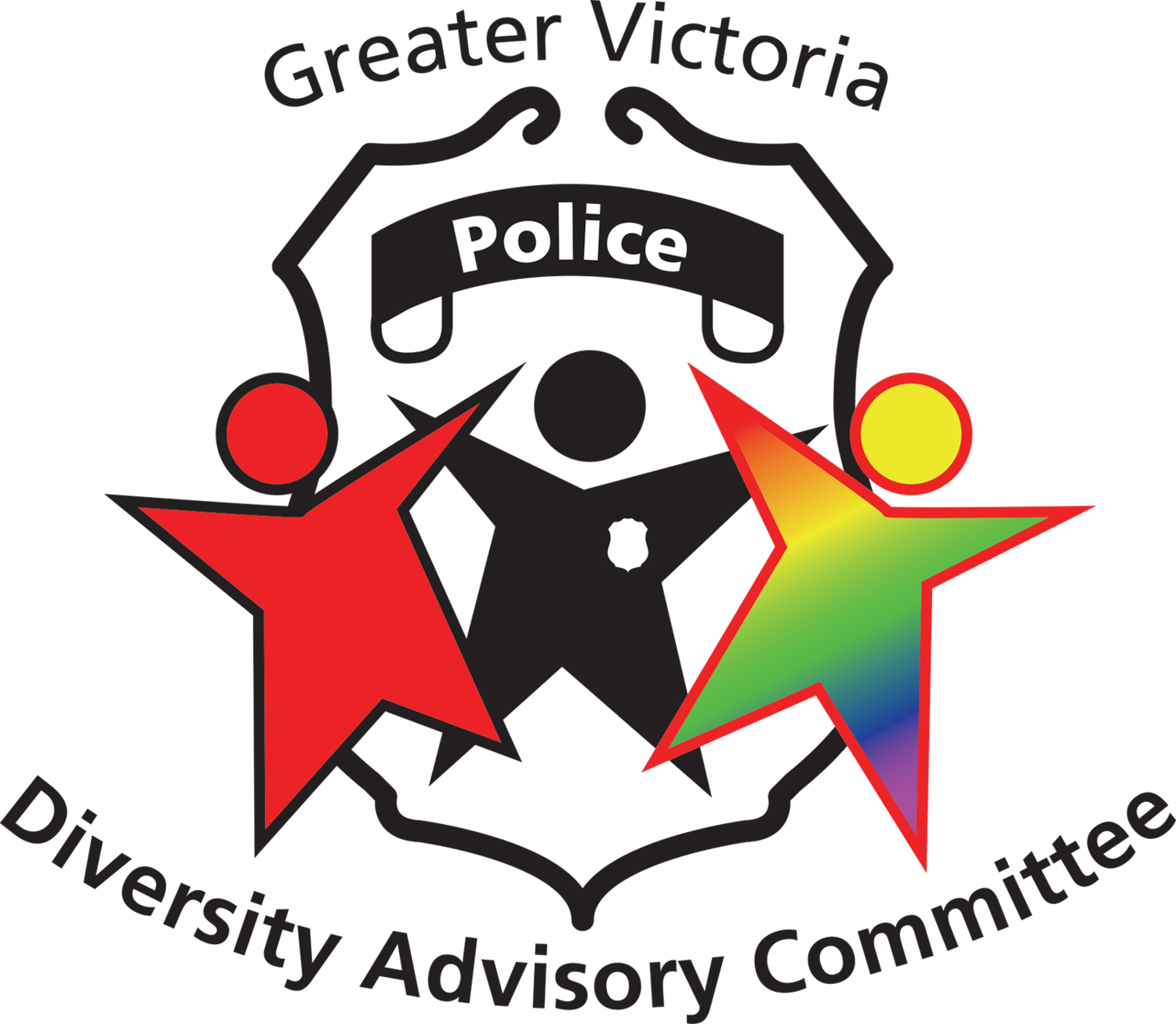Frequently Asked Questions
#1.What is the GVPDAC?
The GVPDAC is an advisory committee comprised of police and community members. The GVPDAC brings together representatives of Greater Victoria’s diverse communities, municipal police departments, RCMP detachments and Military Police for the purposes of improving communication and understanding issues of mutual concern. The GVPDAC also seeks to build positive police and community relationships.
#2.When and why was the GVPDAC created?
The GVPDAC was created based on the need to promote better understanding and relationships between police and diverse communities. This need was identified by two documents that explored police and relationships: (1) Needs Assessment Report on the Diversity Unit of the Victoria Police Department (2000) and (2) Making Peace – the Maturing Partnership of Capital Region’s Minorities and their Police (1998). The latter of these reports was commissioned by the Capital Region Race Relations Association. In 2001, the Greater Victoria Police Diversity Advisory Committee (GVPDAC) was established. It was the first committee of its kind to bring together representatives from the region’s municipal police departments (Victoria, Saanich, Central Saanich and Oak Bay) and RCMP detachments (Sidney/North Saanich and West Shore) with representatives from diverse community agencies.
#3.What groups and communities are represented on the GVPDAC?
The GVPDAC is comprised of representatives from diverse organizations that currently include:
·African Heritage Association of Vancouver Island (AHAVI)
·India Canada Cultural Association (ICCA)
·Inter-Cultural Association of Greater Victoria (ICA)
·Jewish Federation of Victoria and Vancouver Island
·Victoria Immigrant & Refugee Centre Society (VIRCS)
Victoria Native Friendship Centre (VNFC)
Greater Victoria Police Victim Services
Vancouver Island Counselling Centre for Immigrants and Refugees
Ukrainian-Canadian Cultural Society of Vancouver Island
#4.How is the GVPDAC funded and what does the funding provide?
Each year the GVPDAC receives funding from the regional police services. The funding averages approximately $10,000 per year and is used directly for GVPDAC activities such as: monthly meetings, public outreach events (attending cultural festivals, celebrations, etc), hosting community engagement events (forums, workshops, etc.), youth and community bursaries, website maintenance and producing informational materials.
#5.How can my community be involved with the GVPDAC?
You or your organization can be involved with the GVPDAC in the following ways:
·If you represent a cultural, faith or diverse community organization you can apply to become a member of GVPDAC. There are a limited number of community positions available at the GPVDAC. Selection of community members of the GVPDAC occurs on an annual basis. Interested applicants will be requested to:
Complete a GVPDAC Application form
Confirm they represent a diverse community, agency, organization, or association that represents a community group.
Complete an interview with the co-chairs of the GVPDAC (or designate)
Undergo a criminal record check
Subject to approval by the members of the GVPDAC
To learn more about how to become a GVPDAC member please email: gvpdacvictoria@gmail.com
#6.Can I make a complaint about the police with the GVPDAC?
The GVPDAC is an advisory committee and does not have the mandate to receive or investigate specific complaints from the public.
There are several ways to pursue formal complaints:
·Greater Victoria Municipal Police Departments
Each municipal police service is governed by a Police Board. The Police Board is the discipline authority for service and policy complaints. The Board does not have authority to oversee complaints about the actions of individual police officers (referred to as conduct complaints).
You can make a complaint about the services and policies of the region’s municipal police departments directly to the specific police department or to the Office of the Police Complaints Commissioner.
·Office of the Police Complaints Commission
The Office of the Police Complaint Commissioner (the OPCC) provides impartial civilian oversight of complaints by the public involving municipal police. The OPCC provides an accessible way for the public to voice their concerns about the conduct of any municipal police officer or department to an independent body. The OPCC ensures that the complaint process is conducted with impartiality and fairness, to both citizens and police officers alike.
To learn more about the OPPC: OPPC Website
·Royal Canadian Mounted Police
Any individual wishing to lodge a complaint against an RCMP officer, can do so by attending any RCMP detachment. The detachment commander's duty is to ensure that complaints from the public are dealt with in a professional manner. Complaints against an RCMP officer can also be lodged by contacting the Civilian Review and Complaints Commission for the RCMP. The Civilian Review and Complaints Commission for the RCMP is an independent agency, created by Parliament, to ensure that complaints made by the public about the conduct of RCMP members are examined fairly and impartially.
For more information about the CRCC: CRCC Website
#7.How can I find out more about the GVPDAC?
You can find out more about the GVPDAC by downloading our GVPDAC brochure. You can also contact us via email at: gvpdacvictoria@gmail.com

